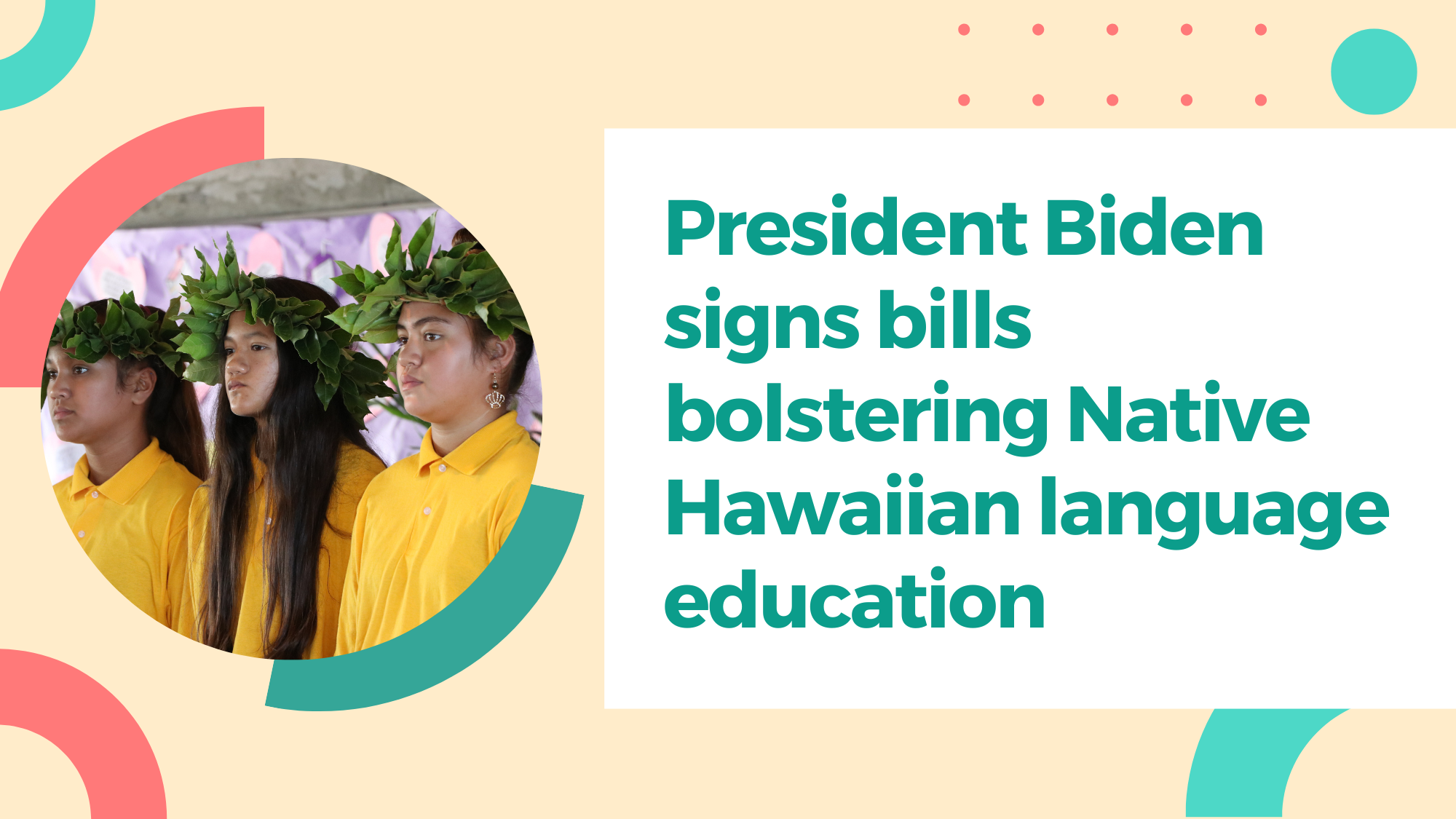Hawaiʻi educators, students to benefit from measures addressing Indigenous languages
Posted: January 20, 2023
President Joe Biden has signed into federal law a bill that will bolster Indigenous language schools and programs with coordinated, experienced support.
U.S. Sen. Brian Schatz (D, Hawai‘i), who chairs the Senate Committee on Indian Affairs, wrote the Native American Language Resource Center Act. Biden signed the proposal, which passed Congress with bipartisan support, into law Jan. 5.
“As we have seen in Hawai‘i, Native speaker-led language programs have proven that culturally based instruction is key to revitalizing and maintaining Indigenous knowledge and traditions,” Schatz said. “The Native American Language Resource Center will build on this grassroots momentum to support Native American language schools and programs by providing them with the resources they need to continue to thrive.”
The Native American Languages Resource Center will comprise a consortium of institutions housed at multiple locations throughout the country, reflecting the geographic diversity of Native American languages, cultures, and communities, Schatz’s office said in a news release. It will support Indigenous language students at all levels of learning, act as a central nexus for Native American language schools and programs across the nation, and provide additional resources to enhance distance learning capacity.
Leaders in Hawaiʻi’s Native Hawaiian education community say the support is greatly needed, especially for smaller organizations that have been instrumental in creating effective curriculum.
Jonathan Osorio, dean of the University of Hawaiʻi’s Hawai‘inuiakea School of Hawaiian Knowledge, told the Honolulu Star-Advertiser, “A regular English-speaking school has enormous numbers and varieties of curriculum to call on. We don’t have those things, and they’re being generated basically by nonprofits.”
Maile Naehu, co-founder and curriculum designer for the online Hawaiian educational program Ka Hale Hoaka, agreed, adding that supporting grassroots organizations also will help Native language education become more accessible, the Honolulu Star-Advertiser reported.
Along with creating Ka Hale Hoaka, Naehu has six years of teaching experience at a Hawaiian-language immersion school and has taught free ʻŌlelo Hawaiʻi classes for over 20 years.
“For the years that I was teaching, and I still see it happening, you have one teacher that’s teaching multiple grades in one classroom (with) very limited resources because they get a tiny, little budget,” Naehu told the Star-Advertiser.
Providing educators with more resources is an important step in strengthening language education programs, she said.
“When you look at (Hawaiʻi State Department of Education) teachers, it’s a constant struggle to feel appreciated,” Naehu said. “So I think it comes down to supporting the ones who are creating these resources.”
The new law is supported by the Hawaiian Language Renormalization Committee, the National Congress of American Indians, National Indian Education Association, National Coalition of Native American Language Schools and Programs, and the Joint National Committee for Languages – National Council for Languages and International Studies.
Biden signed a second bill, Schatz’s Durbin Feeling Native American Languages Act, into law earlier this month. The bipartisan bill named after Durbin Feeling, a renowned Cherokee linguist and Vietnam veteran who passed away on Aug. 19, 2020, will review and make recommendations to improve federal agencies’ coordination in support of Native American languages. It would also authorize a federal survey of Native language use and programmatic needs every five years.

